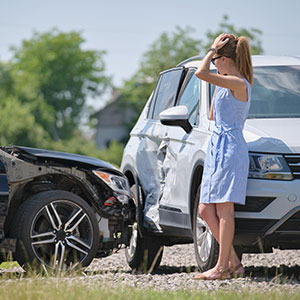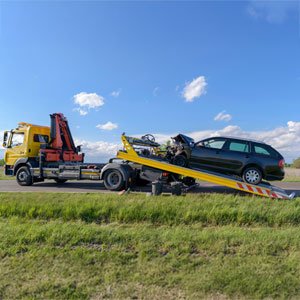Pure Opinion Testimony On Liability Not Allowed Under Daubert
Car AccidentsIn the case of Mastec North America, Inc. and Robert W. Dumas v. Kathleen Morakis, as guardian of Manual Perez Garcia, Case Number 4D18-1321 (Fla. 4th DCA October 2, 2019), Florida’s Fourth DCA held that an accident reconstruction expert’s opinion that an impaired bicyclist would have been “all over the roadway” failed to meet the scientific requirements of Daubert and was excluded from evidence.
Relevant Facts Of The Case
The plaintiff in this case sustained severe injuries upon being hit by a van while he was riding a bicycle. According to the case opinion, he was wearing non-reflective clothing and dark cowboy boots that covered his pedal reflectors. He also did not have lights on his bicycle and there was conflicting evidence about whether his rear reflector would have been positioned correctly.
Most importantly, he had a blood alcohol content of 0.23 and he was approximately 4 feet from the edge of a major six lane road.
The trial judge (over the defendant’s objection) instructed the jury that “alcohol consumption did not cause or contribute to the occurrence of this accident or the plaintiff’s injuries.” The trial judge also instructed the jury to decide “whether the plaintiff was negligent and, if so, whether that negligence was a contributing legal cause of his injuries and damages.”
The jury found for the injured plaintiff but held him 40% responsible for his own injuries. The defense appealed.
Alcohol Intoxication Defense And Comparative Fault
As this case involved voluntary intoxication by the plaintiff, section 768.36, Fla. Stat. applied. Florida’s alcohol or drug defense to torts states that a plaintiff who is intoxicated and more than 50% responsible for their own injuries cannot collect anything.
In this case, Mr. Garcia was well over 0.08 BAC but the issue of responsibility for the impact remained (in other words, comparative fault). This is where things started going off course.
This case was reversed because the trial judge of the judge’s instruction to the effect that Mr. Garcia’s intoxication did not bear on his choice of clothes and because the plaintiff’s expert gave pure opinion testimony that is not allowed under the Daubert standard.
Specifically, the opinion from the plaintiff’s expert that “if the plaintiff had been impaired, he would have been ‘all over the roadway maybe up on the sidewalk jumping the curbs or something like that or if it was bad enough he would have been completely incapable of riding the bicycle and laying on the ground next to his bicycle in the road‘” lacked any basis in scientific principles and is based on insufficient facts.
Daubert requires the following (see our Florida Guide to Daubert):
- 1) the expert’s testimony is based on insufficient facts
- 2) is not based on reliable principles, or
- 3) that the witness has not applied the principles and methods reliably to the facts of the case.
Specifically, the second prong requires the following five factors be taken into consideration:
- Whether the theory or technique in question can be and has been tested
- Whether it has been subjected to peer review and publication
- Its known or potential error rate
- The existence and maintenance of standards controlling its operation
- Whether it has attracted widespread acceptance within a relevant scientific community
Ask Us For Help With Your Florida Car Accident Case
If you or someone you know has been injured in a car, bike, or pedestrian accident, you should look for a Lakeland car accident lawyer near me. A consultation to discuss your case is free. There are no fees or costs unless money is recovered for you.


